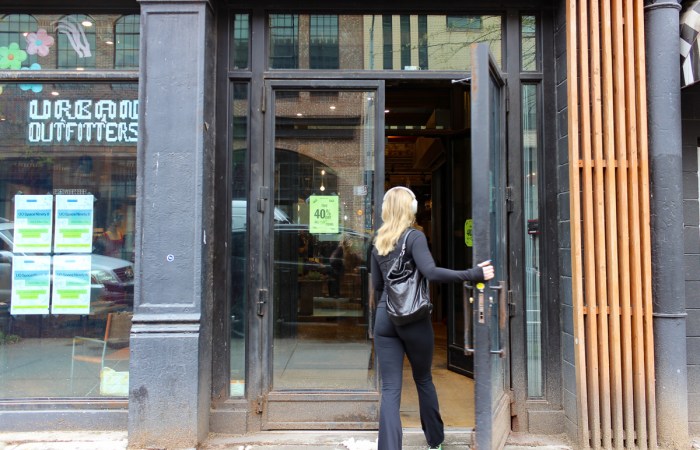Even if you weren’t a fan, the name Kurt Cobain evokes a very particular response. That’s just the way it goes when a successful artist doesn’t get to fall from the pedestal they’re held up so high on. Cobain perished in 1994 before he crashed and burned, leaving his legacy to soar and grab a hold of a new generation.
So with that, biographer Brett Morgen had his work cut out for him, when he sought out to make “Kurt Cobain: Montage of Heck,” but what he had in his toolbox was unprecedented in the canon of Kurt Cobain.
A brilliantly intimate portrait, Morgen culled together a narrative using Kurt’s own words via different forms of his archival art work. Instead of a rock legend, what’s unveiled is an empathetic and often fragile Cobain, who begrudgingly became the voice of Generation X.
amNewYork spoke with Morgen about the film.
Was it hard to unearth Kurt’s truth and have that truth deviate from what people perceive him to be?
Kurt was so passionate about his art, and he worked across different forms of media. In a way I felt that there is an honesty to his art. By using these primary sources, we could really reveal something about Kurt that has been missing. That in and of itself was liberating because I believe I was the first biographer filmmaker to have access to the primary material, which includes interviews with all of his immediate family, as well as [his wife] Courtney [Love] and [daughter] Frances [Cobain’s] archives. There’s a lot of projection and fantasy associated with Kurt. Some of that was created by him.
As far as escaping the mythology, everybody had their own opinion of what Courtney meant to Kurt and her role in his life. Seeing her painted in a different light was eye opening.
It was important to me that we see Courtney through Kurt’s eyes. That was one of the biggest challenges of the film because people are coming with their own predisposed ideas about her and about their relationship, that most of which I found to be very much in conflict with what I was viewing in the raw materials. There’s compatibility and a balance to their relationship that’s in conflict with this idea that Courtney was this overpowering kind of tsunami that dragged “poor little me” Kurt into a downward cycle of heroin abuse. That mere suggestion was something that made Kurt sick. It emasculated him.
How beneficial was it for you to have Frances on board for the project?
This film doesn’t exist without Frances. None of the people that I needed to acquire material from or needed to interview would’ve participated without Frances’ involvement. It gave everyone a level of comfort. Frances said from the very beginning, “I’m hoping that we make a film that’s honest that shows Kurt not as a rock star, but as an artist.” That meant that we were completely in sync with each other because that’s what we went out to do. Her support was unrivaled.
What do you think this film will add to Kurt’s legacy?
There’s more unfiltered material of Kurt Cobain that’s in the film that we’ve ever seen. It absolutely changes the story line and our impressions of him. Every person is going to have their own personal relationship to Kurt, but based upon what’s been going on since we’ve premiered the film, to me without question, that’s the discourse that seems to be engaged with the journalists and viewers so far.
On TV: “Kurt Cobain: Montage of Heck” is set to premiere on HBO Monday at 9 p.m.

















